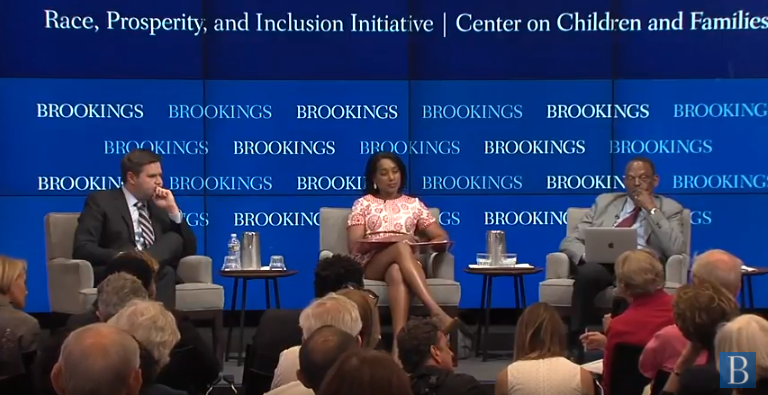Is It All Relative?
As we continue to explore new ideas and investigate novel strategies to boost economic mobility, it is important not to lose sight of our ultimate goal: empowering people to thrive. Academics, policymakers, and scholars working to alleviate poverty and boost economic mobility must use caution when thinking about what qualifies as success and what is the appropriate policy target. At the Archbridge Institute, we strive to never miss the forest for the trees. The goal of empowering individuals to thrive and achieve their American Dream is unlikely to be achieved by cookie-cutter programs that overlook the complexity of individuals’ lives. By removing barriers that stand in the way of success, we can ensure the American Dream is truly within reach for all.
Stay tuned through the end of the year as the Archbridge Institute continues to publish unique and thought provoking research and commentary on economic mobility. I invite you to read one such great commentary on Richard V. Reeves’s recent book Dream Hoarders by our Director of Outreach and Policy Research Ben Wilterdink. Reeves himself called it “A really, really thoughtful review of Dream Hoarders that focuses properly on the distinction between absolute and relative mobility.”
Gonzalo Schwarz
President and CEO | Archbridge Institute

New Commentary from the Archbridge Institute
In his recently released book, Dream Hoarders: How the American Upper Middle Class Is Leaving Everyone Else in the Dust, Why That Is a Problem, and What to Do About It, Brookings Institution Scholar Richard V. Reeves discusses class separation and perpetuation in America. In a review published by Quillette Magazine, Archbridge Institute Director of Outreach and Policy Research Ben Wilterdink argues that Reeves’s analysis is valuable, but his exclusive focus on boosting relative economic mobility is misguided at best and dangerous at worst.
Read the Full Review: Dodging the Hard Question on Economic Mobility
What We’re Reading

What’s behind Declining Male Labor Force Participation
In a new study for the Mercatus Center at George Mason University, Archbridge Honorary Adviser Dr. Scott Winship examines whether the decline in male labor force participation is due to a lack of job opportunities or a lack of men seeking employment.

The Effects of Statewide Private School Choice on College Enrollment and Graduation
Urban Institute researchers Matthew Chingos and Daniel Kuehn evaluate the Florida Tax Credit Scholarship school choice program and find that it has a substantial positive impact on the likelihood that students will enroll in a public college in Florida.

Education Isn’t the Key to a Good Income
Referencing recent economic literature, Rachel M. Cohen of The Atlantic notes that a growing body of evidence debunks the idea that school quality is a main determinant of economic mobility.

How sky-high housing costs make California the poorest state
More than 20 percent of Californians—about 8 million people—struggle financially. When the cost of living is factored in, California has the highest poverty rate in the nation.
Video Spotlight

On September 5, the Brookings Institution hosted a conversation on race, class, and culture featuring J.D. Vance and William Julius Wilson. Drawing on the personal experiences of the discussants, the conversation highlighted different ways to think about economic mobility in America. Watch the full video on YouTube.


